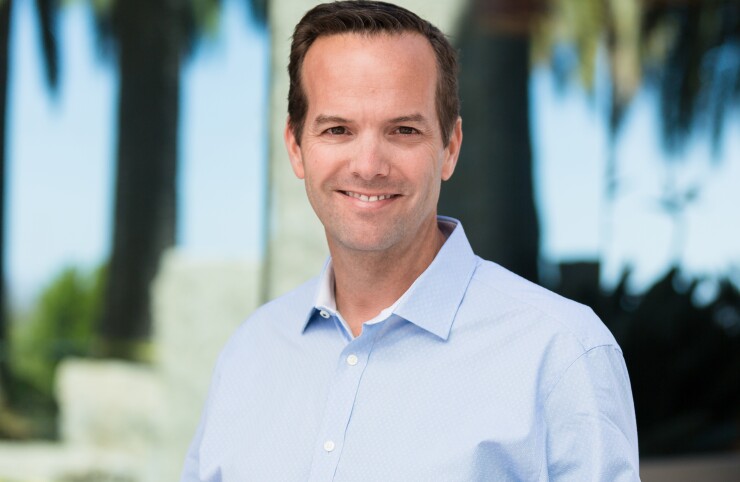The online lender Upstart, which also offers itself as a partner for banks, has raised an additional $50 million to fund its expansion plans — and it’s off to a quick start on some of them.
The San Francisco fintech, which uses artificial intelligence to help make consumer credit decisions, on Monday announced the multimillion-dollar equity investment by Progressive Investment Co., Healthcare of Ontario Pension Plan and First National Bank of Omaha. It also introduced plans for an Upstart-branded credit card and partnerships with three lenders: First National Bank of Omaha, First Federal Bank of Kansas City, Mo., and Accion Chicago.

Upstart, formed by a group of ex-Google employees in 2012, has a direct-to-consumer platform and is a technology provider to banks. It has raised more than $160 million since its inception. It formed its first bank partnership with
The company, citing an internal study, says the loss rate on its loans over the past five years has been less than half of rival platforms’ loss rates when comparing borrowers who have similar FICO scores. Upstart’s pitch to bank partners is that its technology can help them find better credits that outperform their traditional portfolios.
“We did an enormous amount of work adapting machine learning to lending,” said CEO Dave Girouard, a former president of Google Enterprise. “We want to move beyond unsecured personal loans and credit cards and begin to apply our technology to the rest of the market, so we need to grow our team significantly.”
Classic machine learning typically relies on inputting a lot of information, like feeding a computer pictures of cats and dogs so that it knows the difference between the two. Lending is much more complex, as a loan default in the first month has different implications than a loan default in the last month, Girouard said.
Quality of underwriting is one of the few things that can give an entrant to the market an edge, said Lex Sokolin, a fintech entrepreneur and former global director of fintech strategy at Autonomous Research.
“Everything else is uninteresting because there are others who have started earlier or built a bigger consumer distribution,” he said.
The company’s technology takes advantage of a technique called “extreme gradient boosting.” This is where an AI model is laid on top of another model to analyze the areas where the first model could not predict when a loan was going to default.
“This ensemble approach where you don't have just one model is fairly common in modern data science but not very common in lending,” Girouard said.
First National Bank of Omaha will begin using the technology for underwriting unsecured consumer lending in May, said Marc Butterfield, senior vice president of digital and payment solutions at the bank.
“They had already been doing loans to customers for several years and booked tens of thousands of loans to customers,” Butterfield said.
Upstart in 2017 was the first fintech to receive
Upstart executives “already have an understanding that if Upstart is going to partner with banks, they have to be diligent with working with regulators they had already done that work,” Butterfield said.
Girouard said he plans to take the company public in the next two to three years.
“Banks that we partner with are going to want a technology partner that is public and transparent,” he said.





